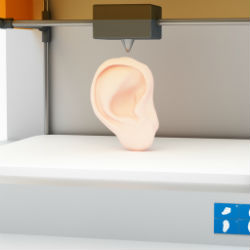The Promises and Pitfalls of Omics in Precision Medicine
Omics techniques that rapidly analyze large amounts of genomic and other data from an individual cell, tissue or patient could greatly benefit precision medicine, but not without challenges. A UR CTSI-led team explored how to apply these techniques to precision medicine and revolutionize patient diagnosis and therapeutic interventions.
We Can Grow a New Ear, But How Do We Regulate It?
Technologies like 3D printing hold a lot of promise for precision medicine - even allowing scientists to grow new ears for children. As these technologies quickly advance, so does the need to regulate them. Regulatory scientists at the UR CTSI have led an effort to identify and address regulatory issues around these technologies so they can be safely applied to precision medicine.
UR CTSI Joins Effort to Expand Experimental Treatment Access to Desperately Ill Patients
The University of Rochester Clinical and Translational Science Institute (UR CTSI) is part of a national effort to help hospitals offer experimental treatments to patients via the FDA’s Expanded Access process and improve how data is tracked from these patients.
Four Ways Academic Organizations Can Boost Clinical Trial Results Reporting
Academic research organizations struggle to comply with expanding federal requirements for registering and reporting results of clinical trials. Luckily, a recent survey suggests four things organizations can do right now to boost compliance.
UR CTSI Regulatory Science Competition Winner Visits the FDA
The winner of the local America’s Got Regulatory Science Talent Competition visited the FDA in April to present her winning proposal: a database to help identify new uses for FDA-approved drugs.




